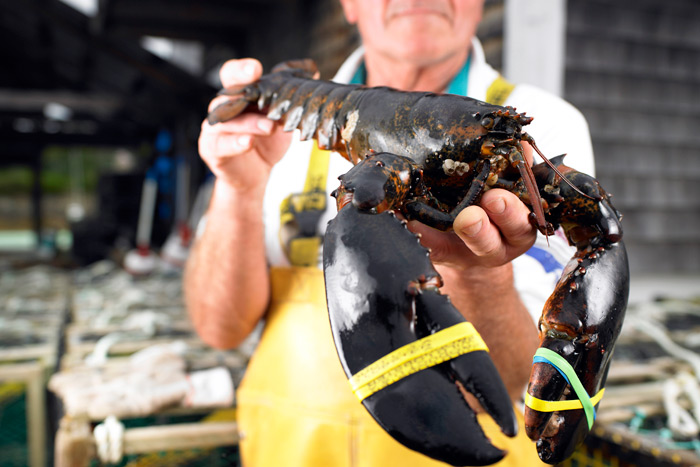Trade War: Belgium and White Mute Swans vs. Sweden and Lobsters

There’s been a lot of concern recently about what might happen if Donald Trump is elected President and he is true to his promises and gets us into a trade war. He’s talked about unilaterally increasing tariffs on goods coming from China, Japan and Mexico. A few weeks ago, The Boston Globe published a “what if” issue that described a disastrous day in the life of America if Trump put all these tariffs into effect and the expected retaliations followed.
Maybe it has already started. Here’s what’s happening with the white mute swans from Belgium, and Sweden’s response against American lobsters.
As you probably know, the State of New York recently passed a law that will require eliminating white mute swans from the ponds and lakes in this state by 2025. The Environmental Protection Agency says white mute swans are an invasive species, illegally transported here from Belgium in the late 19th century by wealthy people to decorate ponds, and it has been a disaster. The swans are aggressive, they take over ponds, forcing indigenous turtles, ducks and geese away. They’ve even been known to peck at humans. It can no longer be tolerated.
The law went into effect May 1. Shooting swans in certain circumstances is now legal. Swans are to be eradicated. Or sent back to where they came from.
Belgium, as I am sure you know, is part of the European Union. And last week, the Swedish Agency for Marine and Water Management filed an 89-page petition to the European Commission to consider banning American lobsters. The petition claims that American lobsters are not only an invasive creature but are a potently dangerous one to the native European lobsters swimming in Scandinavian waters.
The Americans, particularly the males, have far bigger crusher claws than the European males. In 2014, it was found that a dozen of the Americans were frolicking in the Gullmar Fjord on Sweden’s west coast. How they got there, nobody knows. But it wasn’t pretty.
Ann-Lisbeth Agnalt of the Norway Institute of Marine Research in Bergen has said that American male lobsters best the local males in fighting for the affection of the females. She reported that a “very nice and beautiful” local male lobster named Allan suffered such a beating from an American male that he died from the scars caused by the fight. (The scars resulted in shell disease that ate up the shell and killed him.)
This story, including that interview, was on the front page of The Wall Street Journal last week. If the EU puts in the ban, it will seriously impact the exporting of American lobsters to Europe. At the present time, American exports of live lobsters from the northeast U.S. to Europe is a thriving $200 million industry. So this is also a local issue for lobstermen here.
Is this just tit for tat, though? A lobster ban to get back at the Americans for banning the Belgian swans?
There is a mating season with lobsters. In fjord after fjord, not only in Sweden, but also in Norway and Finland, the Americans and Europeans are dueling it out, with the American males and their bigger crusher claws victorious, although not always.
Last year in that Gullmar Fjord, an American female lobster was found to have been fertilized by a European male.
“Once the American lobster is established, it will be impossible to eradicate,” said Gunvor Ericson, the State Secretary at the Swedish Ministry for Climate and the Environment, according to the Journal. Best case for the Europeans, he concluded, will be hybridization. Worst case, eradication.
This magazine, or, anyway, this reporter, has been advocating the free market laissez faire approach to all this. I have argued that all the different creatures on this planet should be allowed to roam freely thither and yon, and that if you look over long periods of time, millions and millions of years, you will find that Belgian swans have been in Ecuador and American lobsters have been in the Mediterranean and maybe they are not there now but so what? We are all one. We are the world. It’s dog eat dog out there. Nothing’s invasive. Leave it alone.
The EU, in their headquarters in Brussels, will begin deliberating the fate of the American lobster in Europe in June.
What’s next? Brussels sprouts?



